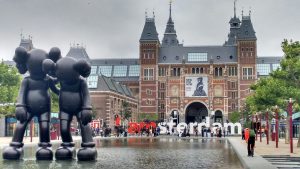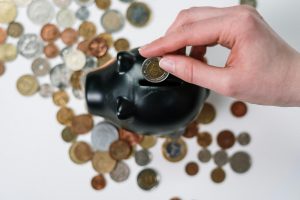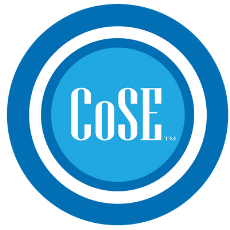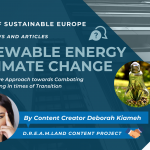Written by Koen Moerman
Can Europe use its normative power to accelerate the transition to a more sustainable world?
Europe’s role in the global climate crisis
States from all over the world are stepping up their game to fight climate change. So do the larger polluters, like the EU. However, is the EU able to accelerate the climate response, not only through its internal efforts, but through its normative power base in the world?
Europe’s normative power
The European Union might be defined as a non-coercive normative power. This means that the EU is, to some extent, able to exert influence over non-EU states, without using military force, through norm building and ideational influence. The EU’s shared identity is mainly constituted by a common pursuit of values like democracy, human rights, social justice and rule of law (Manner, 2002, p. 241).
These values have been integral to EU policy making, and constitute the basis of its norm diffusion on the global political stage. By offering these ideational aspects, the European integration project can present and legitimise itself as more than solely the sum of its parts (Manner, 2002, p.244). Normative power is not just rules-based multilateralism combined with a shared identity promoting particular norms and values, it is also an instrument to be used to shape other states’ conceptions of what is normal (Palm, 2021, p. 3). Shaping norms can be a powerful tool for the EU to influence global politics.

The EU’s norm diffusion
The previous paragraph lays out the basis of the European powerbloc’s norms, and incentives to use them to exert power. However, how are these norms diffused over non-EU states? Manner argues for six aspects of norm diffusion, based on the works of Whitehead (1996), Manners and Whitman (1998), and Kinnvall (1995) (2002, p. 244). The first one is contagion, which is unintentional diffusion of ideas to other political actors. Exemplified by the South-American economical and political bloc Mercosur, which holds characteristics of the European Union’s bloc.
The second aspect is informational, this type of diffusion is characterised by strategic and declaratory communications, such as policy initiatives. Thirdly, there is procedural diffusion, constituted by institutionalised relations between the EU and a third party, the EU’s membership of an international organisation, and by enlargement of the powerbloc. Furthermore, transferal diffusion is associated with the exchange of goods and services, often accompanied by community norms and standards. In addition, Manners lists overt diffusion as the physical presence of EU representatives in third states, be it delegations, or military/ aid missions. The last aspect of norm diffusion is the cultural filter, which is related to the subjects of norm diffusion, learning and forming their identity, influenced by the cultural norms of the diffuser.
(Dušan Cvetanović, 2022)
The EU’s initiatives for a sustainable world
So, what green initiatives does the EU currently have? At the end of 2019, the European Commission’s president Ursula von der Leyen presented the European Green Deal. This is meant to function as the EU’s roadmap to climate-neutrality (EU Monitor, 2023). In 2021, the European Parliament adopted the EU Climate Law, which set targets to reduce emissions by 55% by 2030, and to be the first climate-neutral continent by 2050, and signed it into law. In the same year, the commission proposed the Fit for 55 package, consisting of laws to achieve its goals for 2030. A number of general and industry-specific acts have since been proposed, to make sure the EU will reach its climate targets.
The EU as a green normative power?
The total set of laws opting for a green future are meant to drastically change the future of the EU. However, these measures arguably have a wider effect than solely within the European’s powerbloc. To what extent do these measures affect non-EU states? Is the EU able to exert ‘green’ influence on the global political stage, through norm-setting?
Global Gateway
The EU has external initiatives in the realm of sustainable progress through its Global Gateway programme. According to the European Commission, this is a strategy to boost industries worldwide, respecting the highest environmental standards. These initiatives are implemented using the Team Europe approach, which consists of pooling together the resources and expertise of the EU, the EU’s member states and several institutions. According to the Commission, 300 billion Euro will be mobilised in funds for worldwide investments in sustainable projects, between 2021 and 2027.

(Markus Spiske, 2019)
According to Heijmans, the Global Gateway represents an international extension of the EU’s policy, and for its success, third countries will be required to accept and work within the EU’s norm and rule-based system (2022). This reflects the normative power of the EU, through conditional investments, it will be able to affect the receiving state, by making sure that the projects will implement sustainable practices.
Furthermore, through its internal ambitious green politics, and external initiatives, the EU is widely considered to be a major environmental leader (INADIS Foundation, 2024). This makes the European bloc an ideal partner for third countries to cooperate with and enhance industrial projects with the highest environmental standards.
In sum, the EU uses its normative power to enhance green practices globally. It does this mainly through informational diffusion, exemplified by internal and external policy initiatives, and transferral diffusion, seen with its conditional investments. The European Green Deal functions as an ambitious roadmap for the EU to climate neutrality in 2050. This, together with the Global Gateway programme, positions the EU as a global environmental leader.
To conclude, the European Union has influenced non-EU states by pushing a greener agenda. If it is able to maintain this course, it will keep on doing this in the future, increasing the chances for the global fight against climate change.
So, what does this mean for the younger generation? This generation in particular cares about the future of the planet, and could therefore be more susceptible to the normative influence the EU exerts outside of its union. Because of the EU’s promotion of a global greener agenda. In addition, the young people share of the population of the EU itself might feel a stronger unity and legitimization for the European integration project, due to the push of a green agenda worldwide and within the continent.
 My name is Koen Moerman, 22 years old, and currently based in the Netherlands. I am internationally-oriented and fascinated by the European integration project. I believe that in an evermore interconnected world, cross-border thinking should become the new political paradigm. At Circle of Sustainable Europe, I want to contribute to a better understanding of transnational issues, mainly focussing on sustainability and power. I am excited to be part of the international team and to contribute to the greater cause of CoSE.
My name is Koen Moerman, 22 years old, and currently based in the Netherlands. I am internationally-oriented and fascinated by the European integration project. I believe that in an evermore interconnected world, cross-border thinking should become the new political paradigm. At Circle of Sustainable Europe, I want to contribute to a better understanding of transnational issues, mainly focussing on sustainability and power. I am excited to be part of the international team and to contribute to the greater cause of CoSE.
Bibliography
- Manners, I. (2002). Normative Power Europe, A Contradiction in Terms? https://www.princeton.edu/~amoravcs/library/mannersnormativepower.pdf
- Asst. Prof. Dr. Palm T. (2021). Normative power and EU strategic autonomy. https://hcss.nl/report/normative-power-and-eu-strategic-autonomy/
- EU Monitor (2023). Green Deal: key to a climate-neutral and sustainable EU. https://www.eumonitor.eu/9353000/1/j9vvik7m1c3gyxp/vl9tpq5smfs6?ctx=vkf4n0xn1wzp
- European Commission. Global Gateway. https://commission.europa.eu/strategy-and-policy/priorities-2019-2024/stronger-europe-world/global-gateway_en
- European Commission. Team Europe Initiatives. https://international-partnerships.ec.europa.eu/policies/team-europe-initiatives_en#what-is-team-europe
- Okano-Heijmans, M. (2022). Global Gateway: Positioning Europe for a Sustainable Future. https://www.clingendael.org/publication/global-gateway-positioning-europe-sustainable-future
- INADIS Foundation (2024). EU’s Green Ambitions as its Normative Power in the Multipolar World. https://www.inadis.org/inadis-brief/eus-green-ambitions-as-its-normative-power-in-the-multipolar-world
Imagery
- Cvetanović, D. (2022). EU Flag Swaying with the Wind. https://www.pexels.com/photo/eu-flag-swaying-with-the-wind-12541596/
- Spiske, M. (2019). https://www.pexels.com/photo/earth-blue-banner-sign-3039036/


